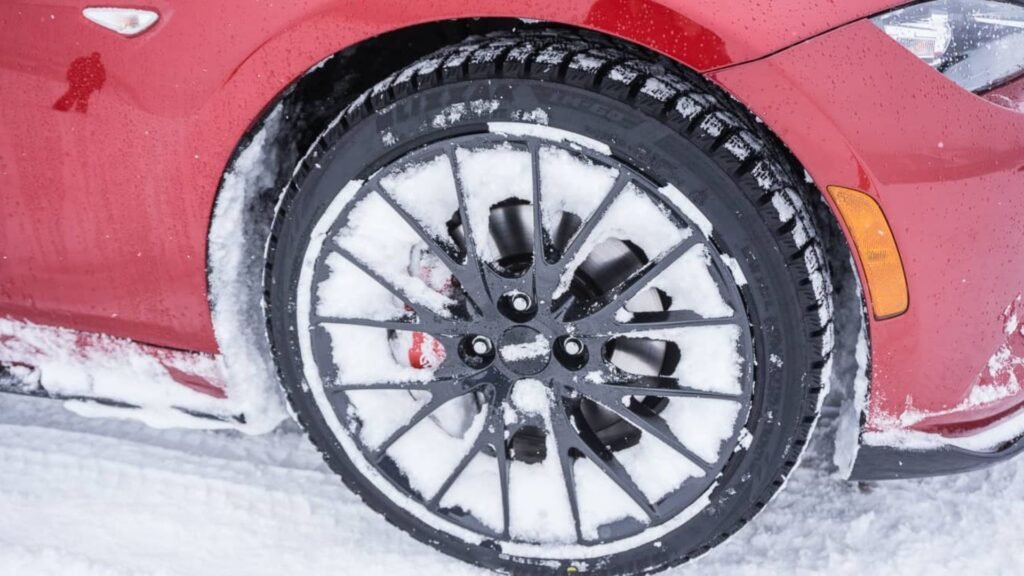Weather conditions can have a significant impact on your vehicle’s braking performance. Different weather elements from rain to extreme heat affect how your brakes function and how safely you can drive. Understanding these effects and knowing how to adjust your driving can help ensure your brakes work effectively, regardless of the weather. Let’s explore how How Weather Affects Your brakes and what you can do to maintain optimal performance.

Rain and Wet Conditions
Impact on Brakes:
- Reduced Traction: Wet roads can significantly reduce the friction between your tires and the road surface. This can increase stopping distances and make it easier for your wheels to skid.
- Brake Performance: Water can cause temporary brake fade, where the brakes become less effective due to the presence of moisture. Additionally, wet conditions can lead to rust or corrosion on brake components if they are not properly maintained.
Tips for Handling Wet Conditions:
- Increase Following Distance: Allow more space between your vehicle and the one in front of you to accommodate longer stopping distances.
- Brake Gently: Apply the brakes gently to avoid skidding and give your vehicle time to adjust to the road conditions.
- Dry Your Brakes: If you drive through water, lightly apply the brakes periodically to help dry out the brake pads and rotors.
Snow and Ice
Impact on Brakes:
- Severe Reduction in Traction: Snow and ice drastically reduce tire traction, making it challenging to stop quickly and safely. Braking on these surfaces can lead to skidding and loss of control.
- Increased Wear: Frequent braking in icy conditions can lead to increased wear on brake components and may cause them to become less responsive over time.
Tips for Handling Snow and Ice:
- Drive Slowly and Smoothly: Reduce your speed and avoid sudden movements, including sharp braking and rapid acceleration.
- Use Winter Tires: Equip your vehicle with winter tires designed to provide better grip on snow and ice.
- Maintain Your Brakes: Ensure your brakes are in good condition before driving in snowy or icy conditions. Regular maintenance helps ensure they perform effectively.
Extreme Heat
Impact on Brakes:
- Brake Fade: High temperatures can cause brake fade, where the brakes lose effectiveness due to the overheating of brake components. This occurs because the brake pads and rotors can become excessively hot, reducing their ability to create friction.
- Increased Wear: Extreme heat can accelerate wear on brake pads and rotors, leading to reduced lifespan and potentially more frequent replacements.
Tips for Handling Extreme Heat:
- Avoid Overuse: Try to avoid excessive or prolonged braking, such as riding the brakes on long downhill stretches. Use engine braking to help reduce the load on your braking system.
- Check Brake Components: Regularly inspect your brake pads and rotors for signs of wear and replace them as needed.
- Monitor Brake Fluid: Ensure that your brake fluid levels are adequate and that the fluid is in good condition. Overheated brake fluid can lose its effectiveness.
Humidity and Moisture
Impact on Brakes:
- Rust and Corrosion: High humidity and moisture can lead to rust and corrosion on brake components, especially if they are not properly protected. Rust can cause the brakes to perform poorly and lead to increased maintenance needs.
- Reduced Performance: Moisture can also cause the brake pads to become less effective temporarily, impacting overall braking performance.
Tips for Handling Humidity and Moisture:
- Regular Cleaning: Keep your brakes clean and free from debris that can trap moisture and cause rust. Regular washing of your vehicle can help remove dirt and salt that contribute to corrosion.
- Inspect for Rust: Periodically check your brake components for signs of rust and address any issues promptly to prevent further damage.
Conclusion
Weather conditions can greatly impact your vehicle’s braking performance. By understanding how rain, snow, heat, and humidity affect your brakes, you can take proactive steps to ensure they remain effective and reliable. Adjusting your driving habits according to the weather, performing regular brake maintenance, and taking appropriate precautions can help you stay safe on the road, no matter what the weather brings. Remember, well-maintained brakes are key to maintaining control and ensuring a safe driving experience in all conditions.




